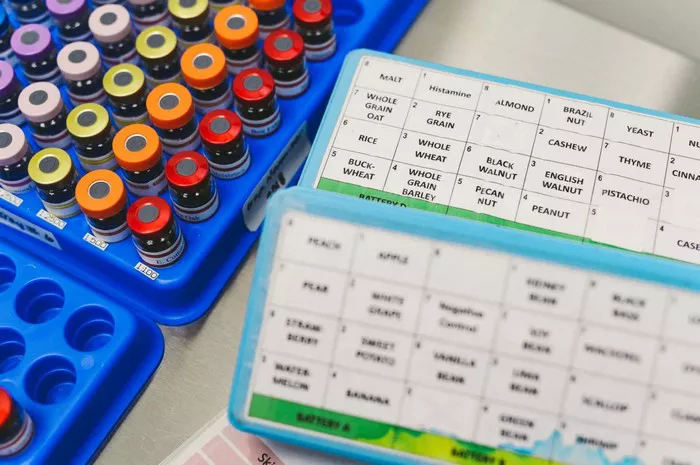Frequent sneezing can be an annoying and disruptive symptom that affects daily life. While it can be caused by various factors, including allergies, infections, and environmental irritants, dietary choices can play a significant role in managing this symptom. This article will explore the potential causes of frequent sneezing, the connection between diet and sneezing, and what foods you should consider including in your diet to help alleviate this condition.
Understanding Frequent Sneezing
Sneezing is a reflex action that helps clear irritants from the nasal passages. It can be triggered by:
Allergens: Common allergens include pollen, dust mites, pet dander, and mold. For individuals with allergies, sneezing is often a response to exposure to these substances.
Infections: Viral infections, such as the common cold or flu, can lead to sneezing as the body attempts to expel the virus.
Environmental Irritants: Smoke, strong odors, pollution, and other irritants can provoke sneezing.
Weather Changes: Sudden changes in temperature or humidity can also trigger sneezing in some individuals.
Understanding the underlying cause of frequent sneezing is essential for determining the appropriate dietary and lifestyle changes to help manage this symptom.
The Role of Diet in Managing Sneezing
While diet alone may not eliminate sneezing, certain foods can help reduce inflammation, boost the immune system, and alleviate allergy symptoms. Here’s a look at various food categories that can be beneficial:
Anti-Inflammatory Foods
Chronic inflammation can exacerbate respiratory issues, including sneezing. Incorporating anti-inflammatory foods into your diet can help reduce this inflammation. Some key anti-inflammatory foods include:
Fatty Fish: Salmon, mackerel, sardines, and other fatty fish are rich in omega-3 fatty acids, which have anti-inflammatory properties.
Fruits and Vegetables: Berries, cherries, spinach, kale, and broccoli are high in antioxidants and vitamins that combat inflammation.
Nuts and Seeds: Walnuts, flaxseeds, and chia seeds are excellent sources of omega-3 fatty acids and other nutrients that help reduce inflammation.
Foods Rich in Vitamin C
Vitamin C is known for its immune-boosting properties and can help reduce the severity of allergy symptoms. Foods high in vitamin C include:
Citrus Fruits: Oranges, lemons, grapefruits, and limes are all excellent sources of vitamin C.
Bell Peppers: Red, yellow, and green bell peppers are packed with vitamin C and can be easily added to salads or dishes.
Kiwi: This small fruit is not only delicious but also contains a high amount of vitamin C.
Spices and Herbs
Certain spices and herbs have natural anti-inflammatory and antihistamine properties that can help alleviate sneezing caused by allergies:
Turmeric: Curcumin, the active compound in turmeric, has potent anti-inflammatory effects. Adding turmeric to your meals can be beneficial.
Ginger: Ginger is known for its anti-inflammatory properties and can help soothe respiratory irritation. Consider adding fresh ginger to teas or stir-fries.
Garlic: Garlic has immune-boosting properties and can help reduce allergy symptoms. Incorporate garlic into your cooking for added health benefits.
Probiotic-Rich Foods
A healthy gut microbiome is crucial for overall immune function. Probiotics can help balance gut bacteria and may reduce allergy symptoms, including sneezing:
Yogurt: Look for plain, unsweetened yogurt that contains live active cultures.
Kefir: This fermented dairy product is rich in probiotics and can be consumed as a drink or added to smoothies.
Fermented Vegetables: Sauerkraut, kimchi, and pickles are excellent sources of probiotics and can be included in various meals.
Hydrating Foods
Staying hydrated is essential for maintaining healthy mucous membranes in the respiratory system. Foods with high water content can help keep you hydrated:
Cucumbers: These refreshing vegetables are about 95% water and can be added to salads or eaten as snacks.
Watermelon: This sweet fruit is hydrating and can be enjoyed fresh or blended into smoothies.
Soups and Broths: Warm liquids can help soothe the throat and keep you hydrated, especially during cold or allergy seasons.
Avoiding Trigger Foods
While incorporating beneficial foods is essential, it’s equally important to avoid foods that may trigger sneezing or allergic reactions. Common trigger foods include:
Dairy Products: For some individuals, dairy can lead to increased mucus production, which may exacerbate sneezing.
Processed Foods: Foods high in preservatives, artificial colors, and flavors can trigger allergic reactions in sensitive individuals.
Spicy Foods: While some people find relief from sinus congestion with spicy foods, others may experience irritation that leads to sneezing.
Lifestyle Changes to Complement Dietary Choices
In addition to dietary adjustments, certain lifestyle changes can help reduce the frequency of sneezing:
Allergen Avoidance: Identify and minimize exposure to allergens. This may include using air purifiers, keeping windows closed during high pollen seasons, and regularly cleaning your living space.
Stay Hydrated: Drink plenty of water throughout the day to help keep mucous membranes moist and functioning properly.
Practice Good Hygiene: Wash your hands frequently and avoid touching your face to reduce the risk of infections that can cause sneezing.
Manage Stress: Stress can exacerbate allergy symptoms. Consider incorporating stress-reduction techniques such as yoga, meditation, or deep-breathing exercises into your routine.
When to Seek Medical Advice
If frequent sneezing persists despite dietary and lifestyle changes, it may be time to consult a healthcare professional. Conditions such as chronic rhinitis, sinusitis, or allergies may require specific treatments, including antihistamines or other medications.
Conclusion
Frequent sneezing can be a frustrating symptom, but dietary choices can play a significant role in managing it. Incorporating anti-inflammatory foods, vitamin C-rich fruits and vegetables, probiotics, and hydrating foods can help reduce sneezing and improve overall respiratory health. Additionally, avoiding known triggers and making lifestyle adjustments can further alleviate symptoms. If sneezing continues to be a problem, seeking medical advice is essential to address any underlying issues. By understanding the connection between diet and sneezing, you can take proactive steps toward a more comfortable and healthier life.
Related Topics:
- How To Do Oral Allergy Syndrome?
- What Causes Cold Allergies?
- What Are The Symptoms Of Gluten Intolerance?


